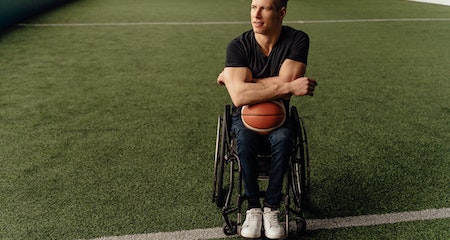Many people aren’t aware of all the benefits disability support services can bring. Consider looking into the services that are available to you if you have a friend, family member or loved one with a disability.
Dedicated disability support workers help disabled people gain new skills and capabilities, allowing them to achieve greater independence. This can result in a happier life for all.
Access to new knowledge and skills
If you have learning, sensory or psychological disabilities, Disability Programs and Services can help you develop core life skills that will help you achieve your goals in life. These skills include communication, self-esteem and relating to others.
DSS offers many additional resources to enhance your college experience. In addition to academic accommodations that comply with the Americans with Disabilities Act (and Section 504 of Rehabilitation Act), DSS also provides a wide variety of other resources. These services enrich your learning experience and prepare you to live after college.
DSS staff work with students in a collaborative, interactive process to determine appropriate and reasonable accommodative measures. This is done under the Americans with Disabilities Act Section 504. Accommodations are provided only when sufficient documentation is presented at this initial intake meeting.
Better quality of life
People with disabilities can benefit from a variety benefits offered by disability support services. They provide them with resources that help them meet their personal care needs and increase their independence.
By providing them with new skills, knowledge and assistance, disability support services can improve the quality of their lives. This helps them lead a more independent lifestyle and boost their self-esteem. disability Services in Melbourne
People with disabilities may require assistance in learning basic daily living skills such as cleaning, cooking, and showering. These skills can be considered preventative medicine because if they don’t learn them, they won’t be able take care of themselves. This will negatively impact their health.
These support professionals also help people with disabilities participate in local community activities, which can be beneficial to their social life and mental health. This can reduce isolation, which is a common symptom of many disabilities and could result in depression and other mental issues.

Employment opportunities
Employment is a fundamental human right, and for those with disabilities, it can be an especially important one. A job can boost an individual’s self-worth and confidence, enable them to be part of their community, and help them create social networks that could be crucial to their wellbeing.
People with disabilities can get the support they need to find and keep a job. They offer training programs that prepare individuals for work, connect them with employers and give them the support they need to perform their duties with confidence and pride.
Employers who hire people with disabilities have lower absenteeism rates and higher employee satisfaction. They also see higher profits and productivity from their teams.
Contribution towards society
The contribution that disability support services make towards society is multi-faceted. They help students of all abilities achieve their goals by providing them with access to new knowledge and skills and promoting inclusive learning environments.
They play an important role in helping students with disabilities succeed at university and beyond. They help students navigate the complex and changing landscape of higher education.
Students who have not been screened by staff at the office are asked to review their medical and mental records in order to determine if they are eligible for support and services. The most important part is that this process is transparent and fair. It is unlikely that a student will be approved for services if they are unable to prove that they have a documented, measurable disability.







